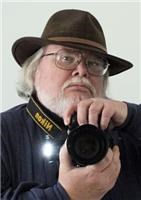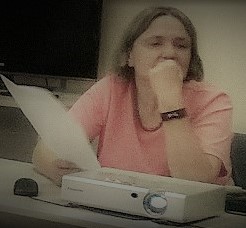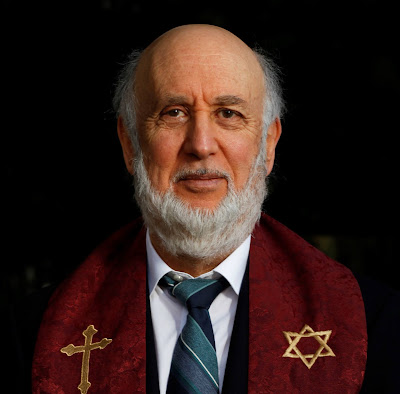Daily Excerpt: Blest Atheist (Mahlou): The Hannah Dustin Award
Excerpt from Blest Atheist
The Hannah Dustin Award
My childhood contained two compartments: home and not-home.
Not-home was a special place that I kept carefully separated to prevent the
excesses of home from tainting it. Not-home was the place where I received
validation, especially from teachers who encouraged me in many ways. Several of
my elementary school teachers used me as a reading group teacher. Others
encouraged my propensity for writing poetry and mysteries. Still others brought
me whole libraries of books from their homes which I would inhale the way I had
inhaled all the books in our small school library. My French teacher in high
school encouraged me to write French poetry, which was published in our
bilingual school journal. More pragmatically, I was drafted to write the class
prophecy my senior year. As a result of all my writing, that last year in high
school, my classmates voted me class poet in the popularity awards that are
typical of American high schools. As even more validation, I won many awards in
school for public speaking, interscholastic debate, drama competitions,
regional spelling bees, and other activities that my teachers encouraged me to
try.
I also won the city’s history-writing award. Years earlier,
someone had left a fund for a monetary award to be given annually to the eighth
grade student who wrote the best essay on the history of the city. The Hannah
Dustin Award was named after a New England heroine, a colonist and mother of
thirteen, living in Haverhill, Mssachusetts, my father’s birthplace. When her
twelfth child was six days old, Hannah was captured by Abenaki Indians who
killed the baby by slamming it against a tree. Rather than seeking a means to
slip away undetected, when the opportunity came, Hannah Dustin defiantly took
on the Indians with the help of other captives and won, freeing all the
captives. About her captivity, a genealogic work, The Dustin/Duston Family, cites her as saying, “I Desire to be thankful that I was
born in a Land of Light & Baptized when I was young and had a good
education by my Father, tho' I took but little notice of it in the time of it—I
am Thankful for my Captivity, 'twas the Comfortablest time that ever I had. In
my Affliction God made his Word Comfortable to me.”. About Hannah and the
escape on Contocook Island, John Greenleaf Whittier wrote: “Taken hostage, she
fought back with deadly force.” That part of Hannah I could always understand.
For the competition, I wrote an essay on the evolution of
the city’s library, an essay that 30 years later the city librarian tracked
down and requested for the library’s archives. So, I no longer have the essay,
but it has a good home. Back in 1963, when the jury read my essay, they claimed
it had been plagiarized because “no eighth-grader writes like this.”
No eighth-grader wrote like that because no eighth-grader
read like I did. Reading “promiscuously” had become my downfall. Even at that
age, my writing was influenced by the likes of Joyce, Faulkner, Thoreau, and
Dickens. These authors and many others were my escape from the various forms of
child abuse I suffered. They gave me a broader picture of the human condition.
Promiscuous reading I inherited from my father, who, in spite of his
poverty-level income, always found a way to bring books into our house. In
fact, he built a library for us and stocked it with most of the great works of
literature. My father, the eight-grade dropout, was an intellectual at heart,
and he raised an intellectual: me. Our home library, the public library, the
school library, and the philosophical discussions with my father in the car on
our 26-mile roundtrip to and from high school developed my intellectual
interests. Those were the good times with my father: when Ma was out of the
picture, when he and I were alone. These were “not-home” times for me, as well,
and resulted in a more trusting relationship with my father than would have
developed had these times not occurred and which never did occur for my younger
siblings. They rode the bus to elementary school. If my parents wanted me to
attend high school (many of my classmates did not), they had to provide the
transportation to a city or town that had one. So, my eighth grade year (which
was the first year of high school in our town), I spent many hours in exciting,
one-on-one, intellectual discussion with my father, hours in which I would feel
validated by him, just as I felt validated by my teachers, especially when
involved in intellectual endeavors. Dad would sometimes take positions with
which he did not agree and require me to do the same to make me develop my
debating skills. Obviously, then, I did not think like an eighth grader,
either.
Mr. Corwin, my eighth-grade social studies teacher,
thankfully leapt to my defense. He brought the jury samples of my writing on
essay questions on his social studies tests. I received the award. To this day,
I remember how I learned about the award. As I was walking through the hall on
the day the winner was announced, I felt a tug on my ponytail. I turned around
to see that it was Mr. Corwin trying to get my attention. He told me what had
happened and then gave me some words of advice that have stood me in good stead
over time: “Young lady, always remember to ‘dumb down’ your writing for
grown-ups.”
For more posts about Elizabeth Mahlou and her books, click HERE.




Comments
Post a Comment